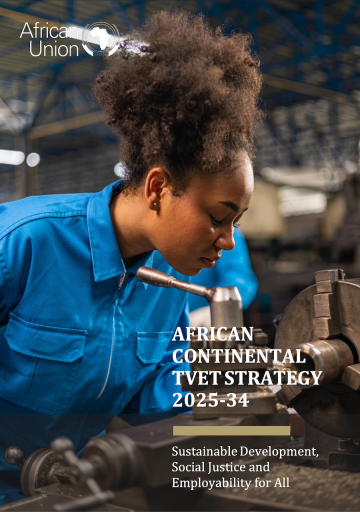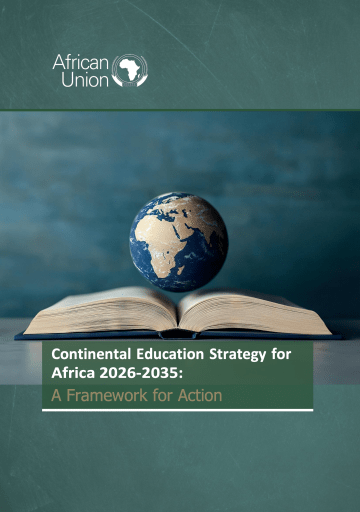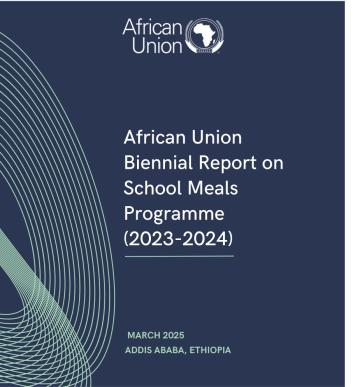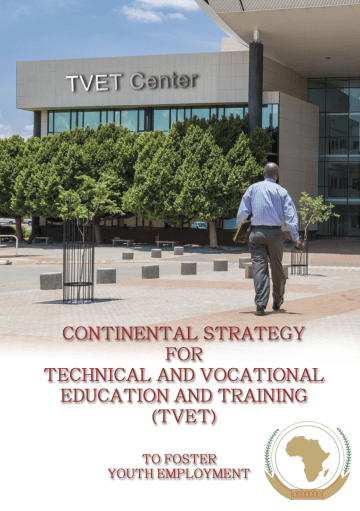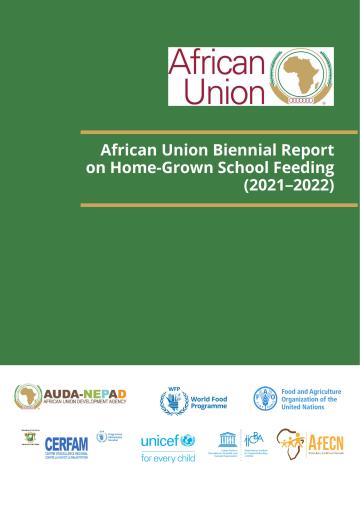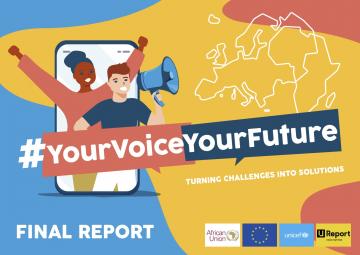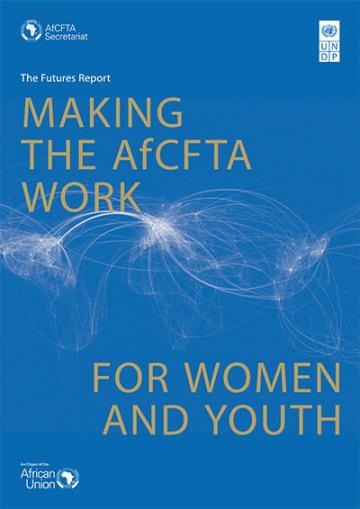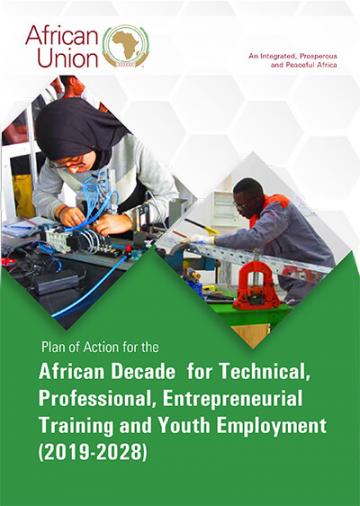Documents récents
-
février 07, 2026AU CIEFFA Bulletin Issue 3
-
juillet 30, 2025Biannual Pan African University Magazine 2024
-
juillet 18, 2025Science, Technology and Innovation Strategy for Africa STISA 2034
Science, Technology and Innovation Strategy for Africa STISA 2034
"Driving Africa's Future" -
juin 16, 2025African Continental TVET Strategy 2025-34
AFRICAN CONTINENTAL TVET STRATEGY 2025-34
Sustainable Development, Social Justice and Employability for All -
juin 16, 2025Continental Education Strategy for Africa 2026-2035
-
juin 05, 2025African Union Biennial Report on School Meals Programme (2023-2024)
-
mars 31, 2025Continental Strategy on Mental Health and Psychosocial Support for Teachers
-
décembre 09, 2024CONTINENTAL EDUCATION CONFERENCE REPORT
-
février 14, 202437th AU Summit - Program
-
février 12, 2024Sustainable School Feeding Across the African Union
-
février 12, 2024Plan of Action
-
février 12, 2024Continental Strategy for Technical and Vocational Education and Training (TVET)
-
janvier 11, 202437th AU Summit - Concept Note
-
octobre 19, 2023Report of the Ministerial Meeting of the STC-EST 4
-
novembre 25, 2022Digital Education StrategyFact Sheet
The African Union Digital Education Strategy and Implementation Plan, covers the period 2023-2028, and establishes a framework for engagement and acceleration of adoption of digital technologies in alignment with the Continental Education Strategy for Africa (CESA).
The Strategy proposes three focus areas, nine strategic objectives and fourteen measures:
The focus areas are:
-
novembre 25, 2022Abridged VersionDigital Education Strategy
The African Union Digital Education Strategy and Implementation Plan, covers the period 2023-2028, and establishes a framework for engagement and acceleration of adoption of digital technologies in alignment with the Continental Education Strategy for Africa (CESA).
The Strategy proposes three focus areas, nine strategic objectives and fourteen measures:
The focus areas are:
-
novembre 25, 2022Digital Education Strategyand Implementation Plan
The African Union Digital Education Strategy and Implementation Plan, covers the period 2023-2028, and establishes a framework for engagement and acceleration of adoption of digital technologies in alignment with the Continental Education Strategy for Africa (CESA).
The Strategy proposes three focus areas, nine strategic objectives and fourteen measures:
The focus areas are:
-
novembre 04, 2021Africa Creates Jobs 2021 COMMUNIQUE 04 November 2021
-
septembre 18, 2021Transforming Education in Africa an evidence-based overview and recommendations
-
mars 01, 2021African Union Biennial Report on Home-Grown School Feeding
This 2019-2020 Biennial Report builds on data and inputs collected by the African Union and its partners gathered in the HGSF Cluster, including WFP, UNICEF and FAO. This report also builds on the school feeding database developed by WFP for its flagship State of School Feeding Worldwide 2020 report, which contains up-to-date and official data on school feeding programmes at the country level.
-
janvier 22, 2021"Your Voice, Your Future" Report
Turning Challenges into Solutions
-
janvier 12, 2021Africa Education Innovations Handbook 2020
Innovations in Harnessing the Capacity of ICT to Ensure Inclusion, Quality and Impact in Education and Training in Africa.
-
décembre 02, 2020Making The AFCTA Work For Women And Youth
The Futures Report: Making the AfCFTA Work for Women and Youth is a groundbreaking UNDP Flagship Initiative produced in collaboration with the Secretariat of the African Continental Free Trade Area (AfCFTA Secretariat.) It tells the story of the promise of the AfCFTA through the voices of women and youth producing goods and services in Africa.
-
novembre 07, 2020African Decade for Technical, Professional, Entrepreneurial Training and Youth
Africa is geared up to overcome its development challenges. The continent’s teeming youth population, which is estimated to rise to 540 million in Year 2030, offers high potential of rapid economic growth and wealth generation if the youths are skilled and engaged in productive work. A skilled labour force attracts foreign investments.
- Page 1
- ››












